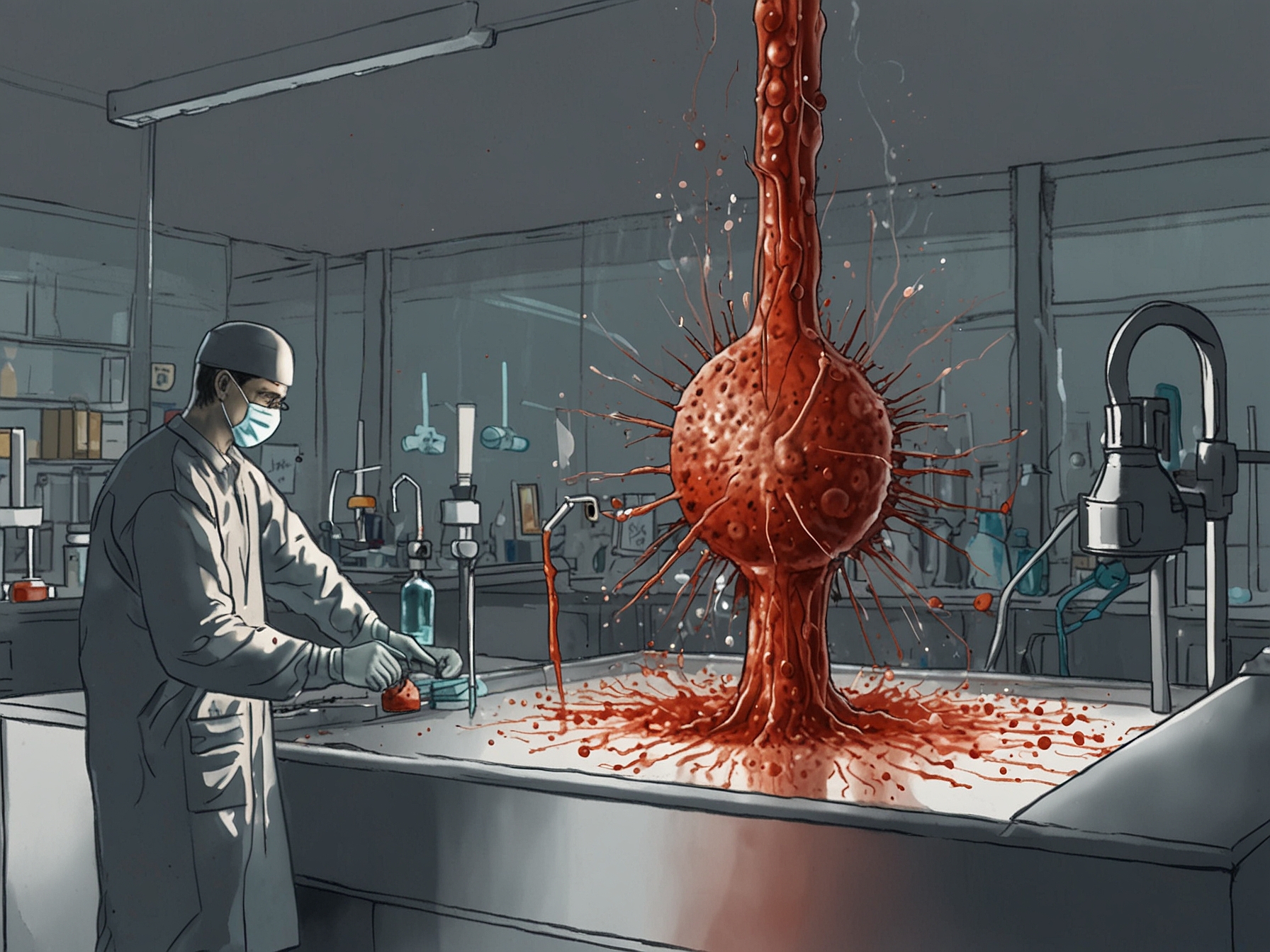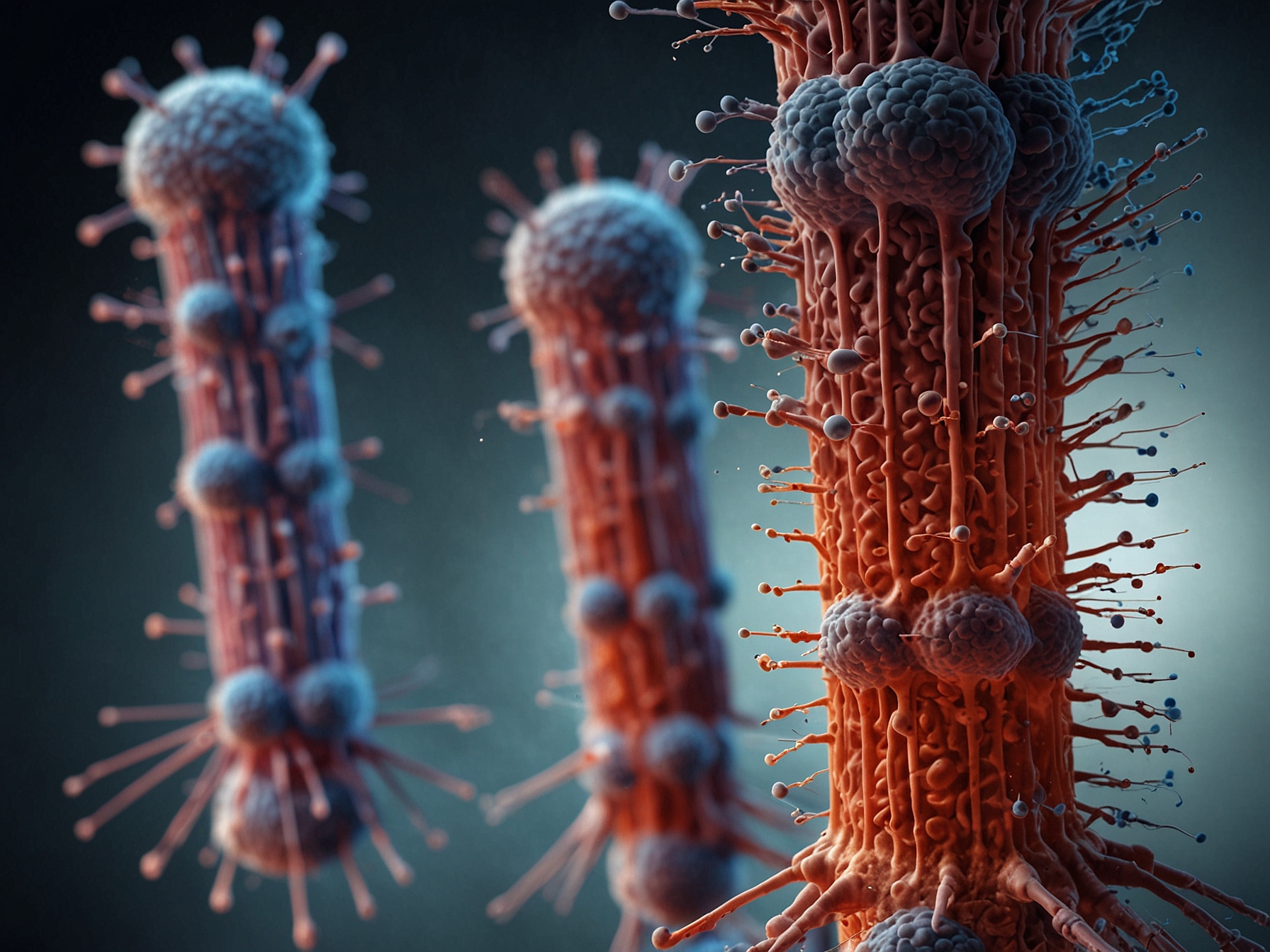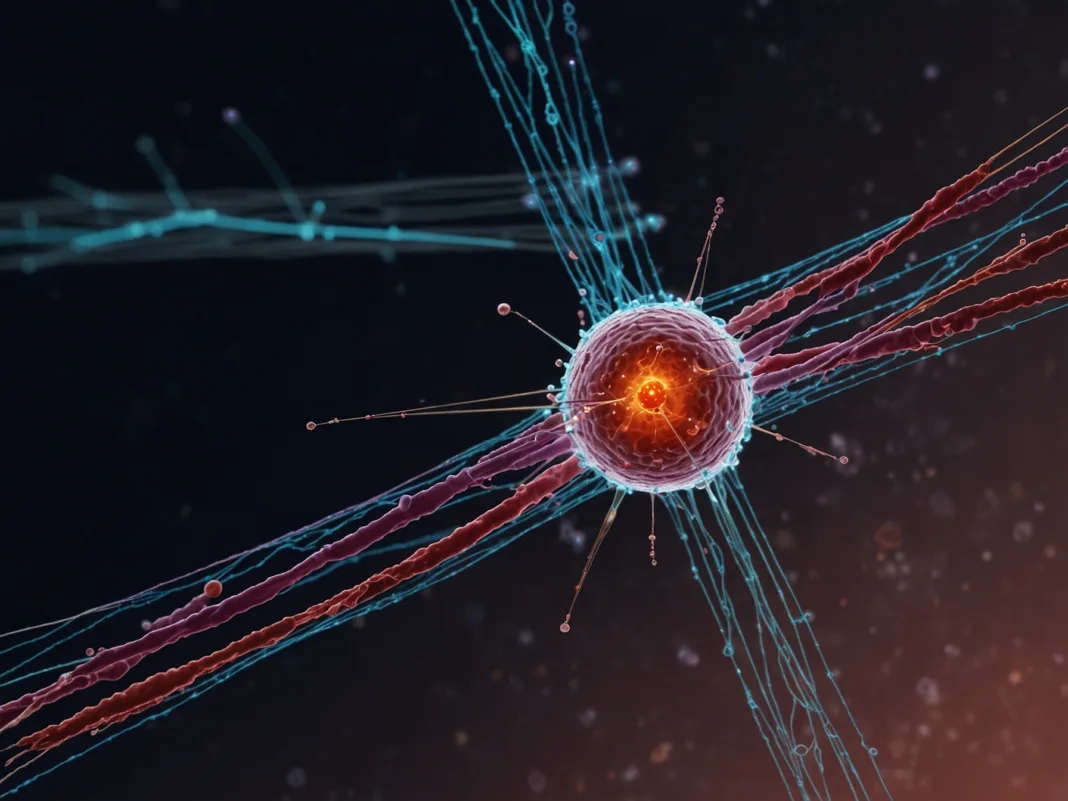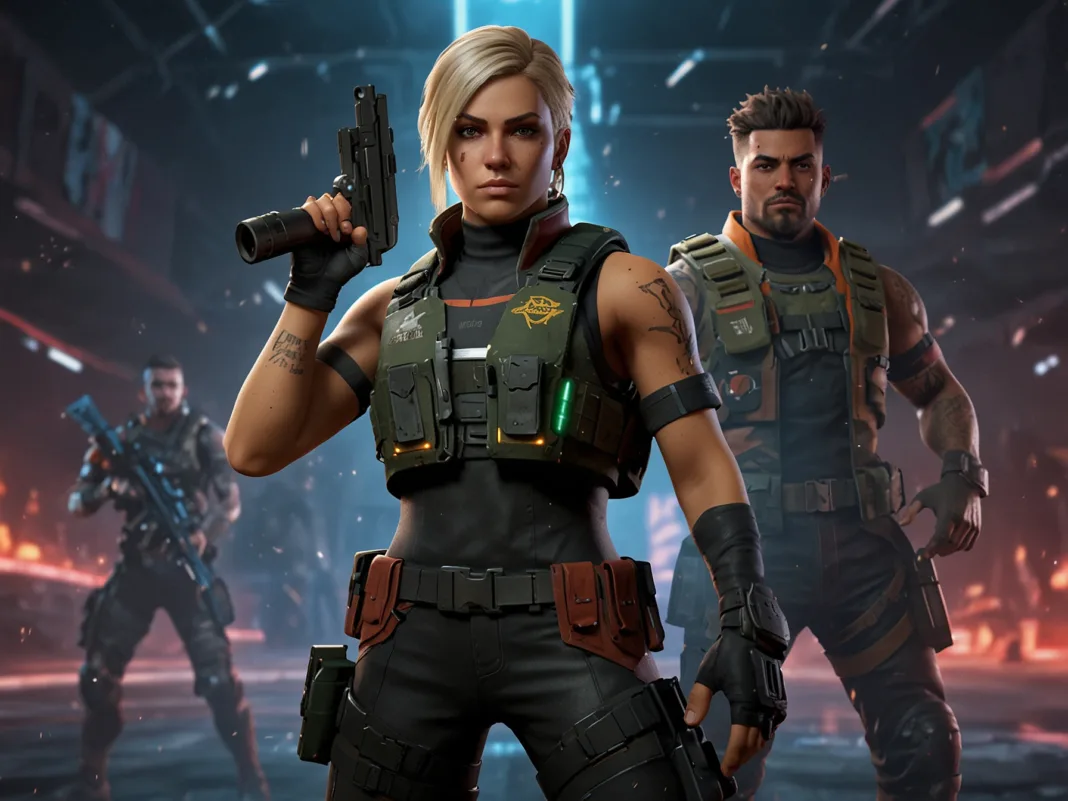Adoptive T-cell therapy has emerged as a groundbreaking advancement in the treatment of various cancers and infections. This cutting-edge approach involves extracting a patient’s T-cells, a specific type of white blood cell integral to the body’s immune defense, and genetically modifying them in a laboratory to enhance their ability to target and destroy harmful cells. Once these enhanced T-cells are infused back into the patient’s body, they patrol the bloodstream, seeking out and obliterating cancer cells or pathogens. This revolutionary therapeutic strategy has shown remarkable potential, offering hope to many patients battling difficult-to-treat conditions.

© FNEWS.AI – Images created and owned by Fnews.AI, any use beyond the permitted scope requires written consent from Fnews.AI
Despite its promising outcomes, adoptive T-cell therapy is not without its challenges. One of the significant hurdles is the efficient modification and expansion of T-cells in the laboratory. Traditional methods can be time-consuming, costly, and sometimes result in an inadequate number of functional T-cells. Addressing these limitations is crucial for improving the efficacy and accessibility of this therapy. This is where the latest innovations in nanotechnology, particularly the use of nanowires, come into play, offering a novel approach to enhancing the process of T-cell modification and expansion.
Nanowires, which are 1000 times thinner than a human hair, provide a unique platform for interacting with biological cells due to their high surface area and customizable properties. Researchers have been exploring how nanowire arrays can be used to mimic the natural microenvironment of T-cells, thereby improving the efficiency of their activation and genetic modification. By incorporating signaling molecules and genetic material onto the nanowires, scientists can precisely deliver these components to T-cells, ensuring that the modifications are both effective and specific.

© FNEWS.AI – Images created and owned by Fnews.AI, any use beyond the permitted scope requires written consent from Fnews.AI
Moreover, nanowires can facilitate the rapid expansion of T-cells. Traditional methods rely on chemical stimuli to proliferate T-cells, which can sometimes lead to heterogeneous populations with varying functionality. In contrast, nanowire-based systems can provide mechanical cues that are more physiologically relevant, leading to more uniform and functional T-cell populations. This method not only speeds up the process but also enhances the quality of the generated T-cells, thus potentially improving the therapeutic outcomes.
The integration of nanowire technology in adoptive T-cell therapy extends beyond just modification and expansion. Researchers are also investigating how nanowires can be used to improve the delivery of T-cells to the target tissues. By engineering nanowire-coated surfaces on delivery devices, it is possible to protect T-cells during infusion and direct them more effectively to the disease sites. This targeted delivery can maximize the impact of the therapy by ensuring that a higher concentration of functional T-cells reaches the affected areas, thereby enhancing the eradication of cancer cells or pathogens.
In addition to their direct applications in T-cell therapy, nanowires open new avenues for monitoring the health and functionality of T-cells both in vitro and in vivo. Nanowire sensors can track key biomarkers in real-time, providing valuable information on the T-cells’ state and response to therapy. This capability allows for more precise adjustments to the treatment protocol, ensuring that the patient receives the most effective therapy possible. Furthermore, this real-time monitoring can help identify potential side effects or complications early, enabling prompt intervention and improving overall patient safety.
The potential benefits of integrating nanowire technology into adoptive T-cell therapy are immense, but there are still several challenges to overcome. Ensuring biocompatibility and the safe disposal of nanowires are critical issues that need to be addressed to prevent any adverse effects. Additionally, large-scale manufacturing of nanowire-based systems must be developed to make this technology widely available. Regulatory approval processes also need to be navigated carefully to bring these innovative solutions from the laboratory to clinical settings.
Despite these challenges, the future of adoptive T-cell therapy looks promising with the advent of nanowire technology. As research progresses, we are likely to see more refined and effective uses of nanowires in enhancing the modification, expansion, delivery, and monitoring of T-cells. This multidisciplinary approach, combining advances in immunology, nanotechnology, and bioengineering, has the potential to revolutionize cancer treatment and offer new hope to patients worldwide. By continuing to push the boundaries of science and technology, we can look forward to a future where adoptive T-cell therapy is more effective, accessible, and capable of saving countless lives.
Was this content helpful to you?





